Posts in Category: Real Estate Investment in Atlanta
Up-and-Coming Atlanta Neighborhoods for Real Estate Investors
Atlanta is a vibrant and growing city that is experiencing a surge in real estate investment activity, as more and more investors look to capitalize on the city’s booming economy and population growth. While there are plenty of established neighborhoods that offer strong potential for ROI, there are also several up-and-coming areas that investors should keep on their radar. In this article, we’ll take a closer look at some of the top up-and-coming neighborhoods in Atlanta for real estate investors.
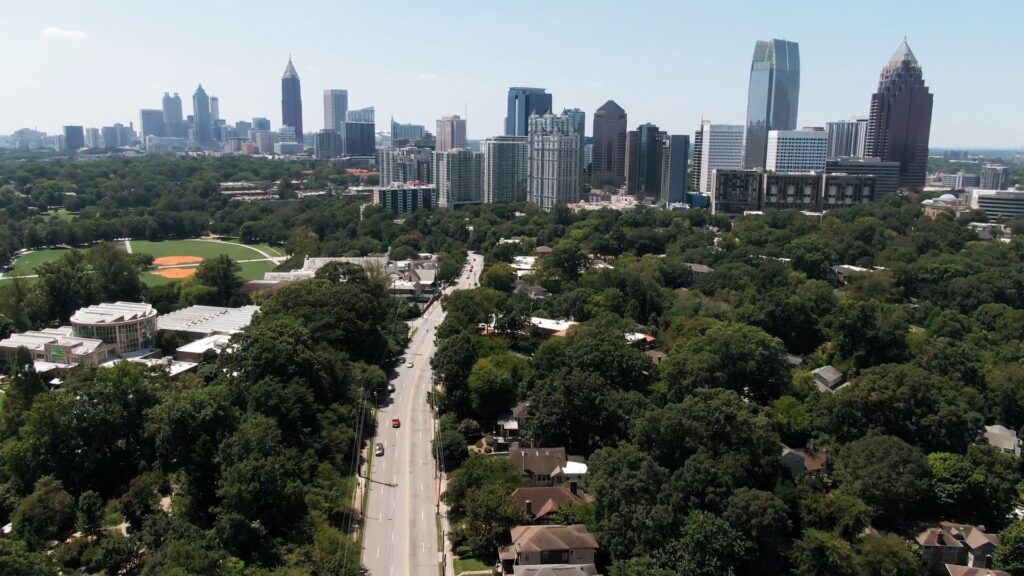
Grant Park
Located just south of downtown Atlanta, Grant Park is a historic neighborhood that has seen a surge in demand in recent years. With its beautiful Victorian homes, tree-lined streets, and close proximity to popular attractions like the Atlanta Zoo and the BeltLine, Grant Park offers strong potential for ROI for investors who are willing to take on a mix of short-term and long-term investment strategies.
Reynoldstown
Another up-and-coming neighborhood in Atlanta is Reynoldstown, which is located just east of downtown. This area has a mix of older and newer homes, and has become increasingly popular with young professionals and families in recent years. With its growing arts and culture scene, trendy restaurants and bars, and easy access to major highways and public transportation, Reynoldstown offers strong potential for ROI for investors who are willing to take on a mix of short-term and long-term investment strategies.
West End
If you’re looking for a zip code with a more historic feel, West End is worth considering. This area is home to some of Atlanta’s most beautiful historic homes, as well as a growing number of new construction projects that are attracting young professionals and families. With its proximity to major employers like Georgia Tech and the Coca-Cola Company, as well as its growing arts and culture scene, West End offers strong potential for ROI for investors who are willing to take on a mix of short-term and long-term investment strategies.
East Lake
Another up-and-coming neighborhood in Atlanta is East Lake, which is located just east of downtown. This area has a mix of older and newer homes, and has become increasingly popular with young professionals and families in recent years. With its proximity to popular attractions like the East Lake Golf Club and the East Lake Park, as well as its growing arts and culture scene, East Lake offers strong potential for ROI for investors who are willing to take on a mix of short-term and long-term investment strategies.
Kirkwood
Finally, if you’re looking for a zip code with a more suburban feel, Kirkwood is worth considering. This area is home to a mix of older and newer homes, and has become increasingly popular with young families in recent years. With its growing arts and culture scene, trendy restaurants and bars, and easy access to major highways and public transportation, Kirkwood offers strong potential for ROI for investors who are willing to take on a mix of short-term and long-term investment strategies.
There are plenty of up-and-coming neighborhoods in Atlanta that offer strong potential for ROI for real estate investors. By staying up-to-date on local trends and working with experienced professionals who can help you navigate the market, you can position yourself for success in this exciting and dynamic city. Whether you’re looking to take on short-term flips or long-term rentals, there are plenty of opportunities to be found in Atlanta’s growing real estate market.
Investing in Atlanta Real Estate: Which Areas Have the Highest Potential ROI?
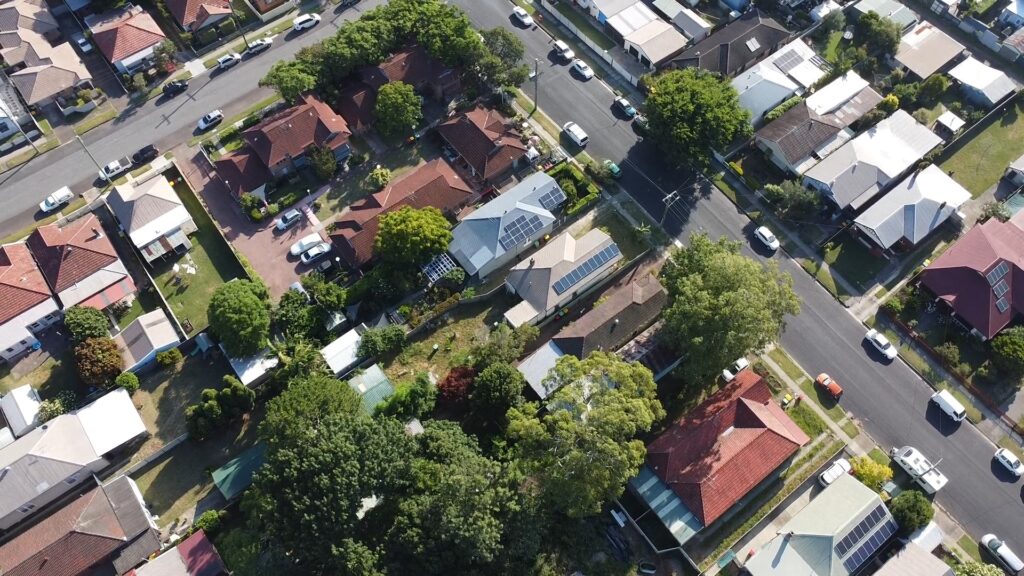
Atlanta, Georgia is a vibrant and growing city that has become a hot spot for real estate investors looking to capitalize on the city’s booming economy and population growth. With a diverse real estate market that includes everything from luxury high-rises to fixer-upper bungalows, there are plenty of opportunities for investors to find properties that offer strong potential for ROI. In this article, we’ll take a closer look at some of the top areas to consider when investing in Atlanta real estate.
Westside
Located just a few miles west of downtown Atlanta, the Westside has become a top destination for real estate investors in recent years. The area is home to several popular neighborhoods, including West Midtown and Atlantic Station, and has seen a surge in demand as more and more people flock to the city. Thanks to its proximity to major employers like Georgia Tech and the Coca-Cola Company, as well as its growing arts and culture scene, the Westside offers strong potential for ROI.
Midtown
If you’re looking for a zip code with a more urban feel, Midtown is a great place to start. This area is home to a mix of residential and commercial properties, including some of the city’s most iconic landmarks like the Fox Theatre and the High Museum of Art. With its easy access to major highways and public transportation, Midtown offers a prime location for investors looking to target a diverse range of buyers and renters.
Buckhead
Another popular destination for real estate investors in Atlanta is Buckhead, which is known for its luxury homes, high-end shopping and dining options, and exclusive neighborhoods. With its strong demand from affluent buyers and renters, Buckhead offers great potential for ROI for investors who are willing to take on higher price points and longer-term investment strategies.
Decatur
For investors looking for a more affordable entry point into the Atlanta real estate market, Decatur is a great option to consider. This area is home to a mix of older and newer homes, and has become increasingly popular with young families and first-time homebuyers. With its proximity to Emory University and the Centers for Disease Control and Prevention, as well as its growing arts and culture scene, Decatur offers strong potential for ROI over the long term.
East Atlanta
Finally, if you’re looking for a zip code with a more eclectic feel, East Atlanta is worth considering. This area has a mix of older and newer homes, and is home to a thriving arts and music scene that has attracted a growing number of young professionals in recent years. With its walkable streets and unique local businesses, East Atlanta offers a strong potential for ROI for investors who are willing to take on a more creative and alternative investment strategy.
No matter which areas you decide to target when investing in Atlanta real estate, it’s important to do your research and work with experienced professionals who can help you navigate the local market. By staying up-to-date on trends and keeping an eye on key metrics like population growth and job creation, you can position yourself for success in this exciting and dynamic market.
The Hottest Zip Codes for Real Estate Investing in Atlanta
As one of the fastest-growing cities in the United States, Atlanta has become a hot spot for real estate investors looking to capitalize on the city’s booming economy and population growth. While there are plenty of great neighborhoods to consider when investing in Atlanta, savvy investors know that the key to success is often finding the right zip codes.
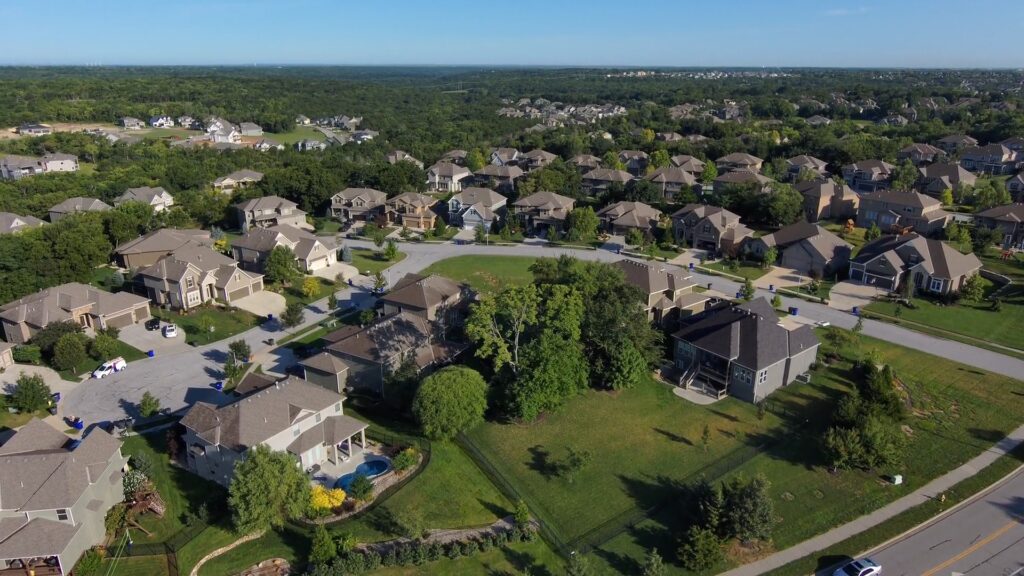
In this article, we’ll take a closer look at some of the hottest zip codes for real estate investing in Atlanta.
30310
Located just a few miles southwest of downtown Atlanta, zip code 30310 has emerged as a top destination for real estate investors in recent years. The area is home to a diverse mix of historic homes and new construction properties, making it attractive to a range of buyers and renters. Thanks to its proximity to popular neighborhoods like West End and Cascade Heights, 30310 has seen a surge in demand in recent years.
30315
Another up-and-coming zip code to watch in Atlanta is 30315, which encompasses parts of the Southside and East Atlanta. The area is home to several large-scale development projects, including the mixed-use Southside Works project, which is set to include office space, retail, and residential units. With its close proximity to downtown and easy access to major highways, 30315 is poised for growth in the coming years.
30318
If you’re looking for a zip code with a mix of investment opportunities, 30318 is a great place to start. This area encompasses parts of popular neighborhoods like Buckhead, West Midtown, and Atlantic Station, and is home to a wide variety of properties ranging from luxury high-rises to fixer-upper bungalows. With its central location and diverse real estate market, 30318 is a great choice for investors looking for a mix of stability and potential for growth.
30331
Located in the southwestern part of the city, zip code 30331 is another hot spot for real estate investing in Atlanta. The area has a mix of residential and commercial properties, and is home to several large employers like the Delta Air Lines headquarters and the Camp Creek Marketplace shopping center. With its growing population and strong job market, 30331 is a great choice for investors looking to build long-term wealth through real estate.
30342
Finally, if you’re looking for a zip code with a more affluent population and a strong luxury real estate market, 30342 is worth considering. This area encompasses parts of Buckhead and Sandy Springs, and is home to some of the city’s most exclusive neighborhoods and properties. With its high-end shopping and dining options, top-rated schools, and easy access to major highways, 30342 is a great choice for investors looking to target high-net-worth buyers and renters.
No matter which zip codes you decide to target when investing in Atlanta real estate, it’s important to do your research and work with experienced professionals who can help you navigate the local market. By staying up-to-date on trends and keeping an eye on key metrics like population growth and job creation, you can position yourself for success in this exciting and dynamic market.
Understanding the Latest Trends in Atlanta Real Estate Investment
Atlanta, Georgia is a rapidly growing metropolitan area that has been attracting real estate investors from across the country for many years. With a strong economy, growing population, and diverse real estate market, Atlanta offers a variety of investment opportunities for investors of all levels. In this article, we’ll explore the latest trends in Atlanta real estate investment, and what they mean for investors looking to get involved in this dynamic market.

Trend #1: Low Inventory, High Demand
One of the most significant trends in the Atlanta real estate market is the current state of inventory. According to recent data from the Atlanta Realtors Association, the supply of homes for sale in Atlanta is at an all-time low, while demand remains high. This trend is driving up home prices and making it more difficult for buyers to find the right property.
For investors, this trend presents both challenges and opportunities. On the one hand, it may be more challenging to find the right property at a reasonable price. On the other hand, it also means that rental demand is high, and rental rates are increasing, making it an attractive time to invest in rental properties.
Trend #2: Strong Appreciation Rates
Another trend in the Atlanta real estate market is the strong appreciation rates seen over the past few years. According to Zillow, the median home value in Atlanta has increased by over 12% in the past year alone. This trend is being driven by a combination of factors, including low inventory, high demand, and a growing economy.
For investors, this trend means that there is potential for significant returns on investment, particularly for those who purchase properties in up-and-coming neighborhoods. However, it’s important to keep in mind that the real estate market can be cyclical, and appreciation rates may not continue at the same pace indefinitely.
Trend #3: Increasing Interest Rates
One trend that may have an impact on real estate investors in Atlanta is the rising interest rates seen in recent months. The Federal Reserve has raised interest rates several times in the past year, with more increases expected in the coming months. While interest rates are still relatively low by historical standards, they are higher than they have been in recent years.
For investors, rising interest rates mean that financing costs will increase, making it more expensive to borrow money to purchase investment properties. However, it’s important to keep in mind that interest rates are still low overall, and Atlanta’s strong real estate market may offset some of these higher costs.
Trend #4: Growth in Commercial Real Estate
While residential real estate is a significant part of the Atlanta market, the city is also seeing strong growth in the commercial real estate sector. According to data from CBRE, Atlanta is among the top markets in the country for office space demand, driven by strong job growth and an increasing number of businesses relocating to the area.
For investors, this trend presents opportunities to invest in commercial properties such as office buildings, retail spaces, and warehouses. While commercial real estate can offer higher returns than residential properties, it also comes with unique risks and challenges. One crucial factor to consider is security—integrating advanced security systems or working with a professional locksmith can help protect commercial properties from theft and unauthorized access, ensuring a safer investment while enhancing property value.
Trend #5: Emphasis on Walkability and Transit
Finally, one trend that is shaping the Atlanta real estate market is the emphasis on walkability and transit-oriented development. As the city continues to grow, there is a push to create more walkable neighborhoods with easy access to public transportation. This trend is being driven by a desire for more sustainable and environmentally friendly living, as well as the need to ease traffic congestion in the city.
For investors, this trend presents opportunities to invest in properties located in walkable neighborhoods with easy access to public transportation. These properties may be more attractive to renters and may appreciate at a faster rate than properties in less desirable areas.
Understanding the latest trends in Atlanta real estate investment is essential for anyone looking to invest in the city’s thriving real estate market. By staying up to date on these trends and identifying opportunities that align with your investment strategy, you can make informed decisions and potentially earn significant returns on your investments. Whether you’re looking to invest in rental
Top 5 Neighborhoods for Real Estate Investment in Atlanta
Atlanta is a city with a rich history and diverse culture, and it’s also a great place to invest in real estate. With a booming economy and a growing population, Atlanta has become an attractive destination for real estate investors. If you’re considering investing in Atlanta’s real estate market, here are the top five neighborhoods to consider:
Buckhead
Buckhead is one of the most affluent neighborhoods in Atlanta, and it’s a popular destination for both tourists and locals. It’s known for its high-end shopping, fine dining, and luxury hotels. Buckhead is also home to some of the most prestigious private schools in the city, making it a desirable location for families. In terms of real estate, Buckhead is known for its luxurious single-family homes, high-rise condos, and townhouses. The median home value in Buckhead is around $800,000, making it one of the most expensive neighborhoods in the city. However, the high property values in Buckhead make it a great place to invest in real estate.
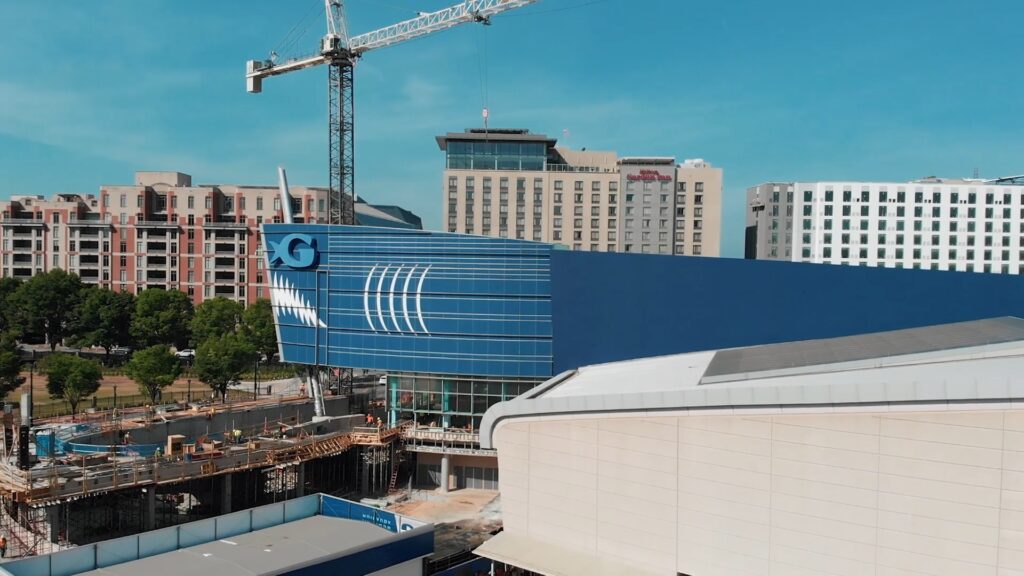
Midtown
Midtown is one of the most vibrant and diverse neighborhoods in Atlanta. It’s home to the city’s arts district, which includes the High Museum of Art, the Woodruff Arts Center, and the Fox Theatre. Midtown is also home to some of the city’s most popular restaurants and nightlife destinations. In terms of real estate, Midtown has a mix of high-rise condos, townhouses, and single-family homes. The median home value in Midtown is around $500,000, making it a more affordable option than Buckhead.
Virginia-Highland
Virginia-Highland is a charming neighborhood located just east of Midtown. It’s known for its tree-lined streets, historic homes, and eclectic mix of shops and restaurants. Virginia-Highland is also home to some of the best public schools in Atlanta, making it a popular destination for families. In terms of real estate, Virginia-Highland has a mix of historic single-family homes and newer condos and townhouses. The median home value in Virginia-Highland is around $650,000.
West End
West End is a historic neighborhood located just southwest of downtown Atlanta. It’s known for its beautiful Victorian homes, tree-lined streets, and close proximity to the city’s major attractions. West End is also home to the Atlanta University Center, which includes four historically black colleges and universities. In terms of real estate, West End has a mix of historic single-family homes and newer condos and townhouses. The median home value in West End is around $250,000, making it a more affordable option than some of the other neighborhoods on this list.
Old Fourth Ward
Old Fourth Ward is a neighborhood located just east of downtown Atlanta. It’s known for its historic homes, trendy restaurants, and nightlife destinations. Old Fourth Ward is also home to the Atlanta Beltline, a network of parks, trails, and transit that connects some of the city’s most popular neighborhoods. In terms of real estate, Old Fourth Ward has a mix of historic single-family homes, new condos and townhouses, and apartment buildings. The median home value in Old Fourth Ward is around $500,000.
Atlanta is a great place to invest in real estate, and these five neighborhoods are some of the best places to start. Whether you’re looking for luxury homes, affordable options, or a mix of both, Atlanta has something for everyone. By doing your research and working with a trusted real estate agent, you can find the perfect investment property in Atlanta.
What Is The Impact of Inflation on Real Estate Investing?

Inflation can have a significant impact on real estate investing, both in terms of the value of properties and the returns that investors can expect to earn. Here are some key ways that inflation can affect real estate investing:
Property Values: Inflation can impact property values by increasing the cost of building materials, labor, and other expenses associated with real estate development. This can lead to higher construction costs, which in turn can lead to higher property values.
Rent Prices: Inflation can also impact the price of rent, as landlords may need to increase rents in order to keep up with rising operating costs. This can be particularly challenging for tenants who are on fixed incomes or have limited housing options.
Financing Costs: Inflation can also impact financing costs, as interest rates may rise in response to inflationary pressures. This can make it more expensive for real estate investors to borrow money to finance their investments.
Cash Flow: Inflation can impact cash flow by reducing the purchasing power of rental income. For example, if rent prices do not increase as quickly as inflation, the value of rental income may decrease over time. This can make it more difficult for investors to generate positive cash flow from their real estate investments.
Asset Allocation: Inflation can also impact the allocation of assets within a real estate portfolio. For example, in a high inflation environment, investors may prefer to hold assets that are less sensitive to inflation, such as commodities or inflation-protected securities.
Despite the potential challenges posed by inflation, there are also ways that real estate investors can benefit from inflationary environments. For example, rising property values can lead to increased equity in a property, which can in turn increase the potential for capital gains when the property is sold. Additionally, rising rents can lead to increased cash flow, which can provide a source of income for investors.
To mitigate the impact of inflation on real estate investing, investors may consider taking the following steps:
Invest in properties that are likely to hold their value over time, such as properties in high-demand locations or properties that have unique features that make them desirable to tenants.
Consider investing in properties with long-term leases that include rent escalation clauses that are tied to inflation.
Consider investing in properties with fixed-rate financing in order to lock in financing costs and reduce the impact of rising interest rates.
Stay informed about macroeconomic trends and adjust investment strategies accordingly in response to changing inflationary pressures.
In conclusion, inflation can have a significant impact on real estate investing, but there are steps that investors can take to mitigate its effects. By staying informed about macroeconomic trends, carefully selecting properties, and considering different financing options, real estate investors can successfully navigate the challenges posed by inflation and earn attractive returns from their investments.
How is Real Estate Investing in Atlanta GA?
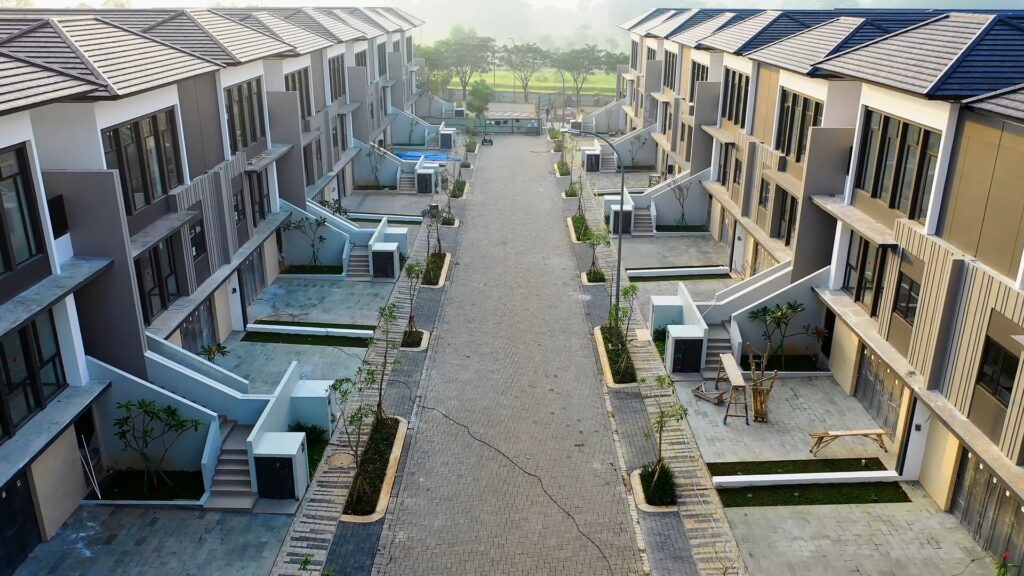
Real estate investing in Atlanta, GA can be a lucrative and rewarding venture for those who are willing to put in the time and effort. Here are some key factors to consider when investing in Atlanta real estate:
Market Demand: Atlanta is one of the fastest-growing cities in the United States, with a strong demand for housing and commercial properties. The city’s population has grown by over 20% in the last decade, and this trend is expected to continue. Additionally, Atlanta is a major economic hub, with a diverse range of industries and a growing startup scene, which can create opportunities for commercial real estate investment.
Neighborhoods: Atlanta is a diverse city with many different neighborhoods, each with its own character, culture, and real estate market. Some of the most popular neighborhoods for real estate investment include Midtown, Buckhead, Virginia Highland, and Inman Park. Each of these neighborhoods has its own unique features and amenities, which can attract different types of tenants and buyers.
Property Types: Atlanta has a range of property types available for investment, including single-family homes, townhouses, condominiums, and commercial properties such as office buildings, retail centers, and industrial parks. Depending on your goals and expertise, you may choose to specialize in one or more of these property types.
Financing Options: There are many financing options available for real estate investors in Atlanta, including traditional bank loans, private lenders, and crowdfunding platforms. It’s important to do your research and compare rates and terms to find the best financing option for your needs.
Regulations and Taxes: Like any real estate market, Atlanta has its own set of regulations and taxes that investors need to be aware of. For example, Georgia has a state income tax rate of 5.75%, and Atlanta has a 1% sales tax on most goods and services. Additionally, landlords in Atlanta must comply with local regulations regarding tenant rights and property maintenance.
Rental Rates: Rental rates in Atlanta have been steadily increasing over the last few years, with the average rent for a one-bedroom apartment in the city currently around $1,200 per month. This can provide a steady source of income for investors who choose to purchase rental properties in high-demand areas.
Property Appreciation: The Atlanta real estate market has been appreciating steadily over the last few years, with home values in the city increasing by over 9% in 2020 alone. This means that investors who purchase properties in the right neighborhoods can benefit from long-term property appreciation, as well as potential short-term gains through resale.
Strong Economy: Atlanta is home to many major corporations and has a diverse economy, with a strong presence in industries such as finance, technology, and logistics. This can create opportunities for commercial real estate investment, as well as providing a stable economic foundation for the city’s real estate market.
Proximity to Major Transportation Hubs: Atlanta is home to one of the busiest airports in the world and is a major transportation hub for the southeastern United States. This can make it an attractive location for commercial real estate investment, as well as providing easy access to transportation for residents and businesses.
Overall, real estate investing in Atlanta, GA can be a profitable and rewarding venture for those who are willing to do their research, stay up-to-date on market trends, and make strategic investments. By choosing the right neighborhoods, property types, and financing options, and staying compliant with local regulations and taxes, investors can build a strong and successful real estate portfolio in Atlanta. With a growing population, strong economy, and diverse range of properties and industries, Atlanta is a prime location for real estate investment in the United States.
